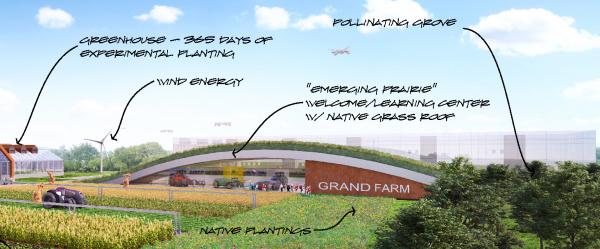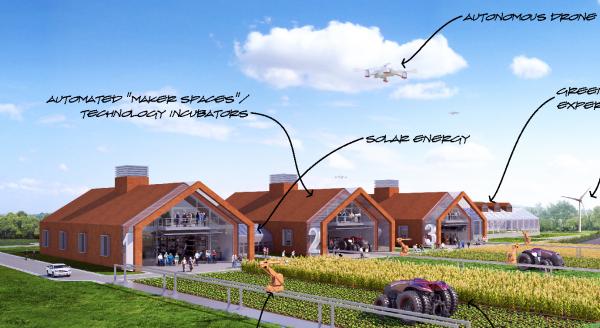Farming 2.0 may produce more food, but who will own it?
Is there still any REAL difference between seeds and DVDs?

Autonomous farming is farming mostly done by machines, with other machines gathering and processing data to decide what, when, where and how much gets planted and fertilized and harvested.
This kind of farming has a huge potential to, for example, reduce farming’s carbon footprint and costs, and also to increase yelds, through a highly efficient use of resources and data.
If you read this blog regularly, very little of the implications will be new for you, but a new article about What AI Down on the Farm Could Mean for Rural America nicely summarizes some key points I have already made here several times. Here they are, with some links to further reading.
-
Porting Artificial Intelligence (AI) to agriculture is above all a deep, critical sociocultural and political transformation, first for rural areas, then for everybody. The actual technical revolution is the least important part of the whole picture
-
This is a revolution that could make [agricultural] ownership as we know it a thing of the past. Both for individual farmers, and for whole rural communities

Tractors and seeds like movies and music
The restrictions we’re used to see on movies and music “piracy” now also apply to tractors on a farm. Software has ported, even to agriculture, the same notion of eternal corporate ownership that is embarrassingly called “creativity” in Hollywood.
This effectively turns farmers into tenants rather than owners. No more ownership, no more control of strategies and profits, no more real accountability:
- “Is [all this tech] being used to maximize benefits on the farm for me or is it being used by a company that wants to sell me more stuff?”
- “If a computer [makes a farming decision], what can I do if it’s wrong?”
- Why are farmers “paying more for our seed than we ever have”?
Farmers falling into the mainstream model of “farming 2.0” can hardly have positive answers to questions like these. When they get any answer at all, of course. Moreover, farms automatized with the same criteria also end up to be owned by remote companies that, among other things, “tend to buy further away which, again, hurts that local business”.
Before Big Data, fair agriculture needs the right laws to handle them
This is true in any field, by the way. As far as agriculture and farming are concerned, these three quotes from the article are all you need to forward to your political representatives:
- “We need new laws to really make clear that owners own things. Even if they’ve got software on them”
- Anything that the company would use to repair it, the owner should have that, too."
- Because “when you’re dealing with some of these big players, it’s really only governments that have teeth to do something about it”.
If you are still not convinced you should act, see my other posts about agriculture, farming, starting from these ones that show possible solutions:
- Old tractors are the REAL modern ones
- Pepsi potatoes: a preview of IP-based serfdom
- Agriculture innovation in India: is it looking in the right direction?]()